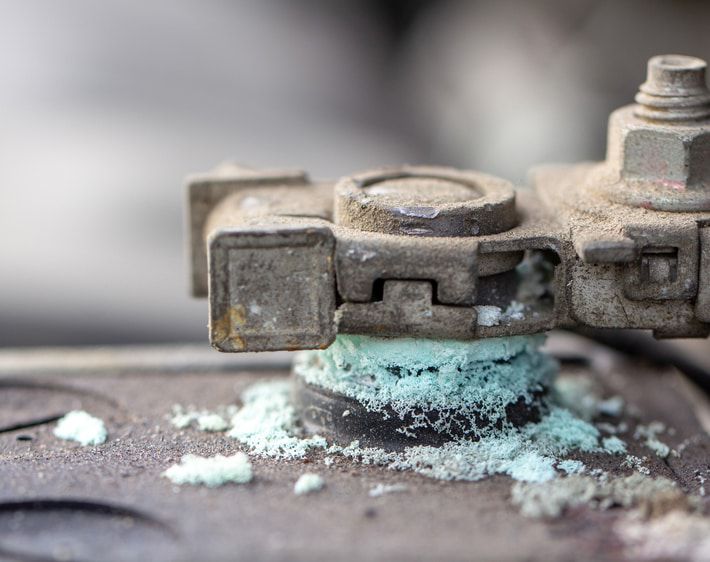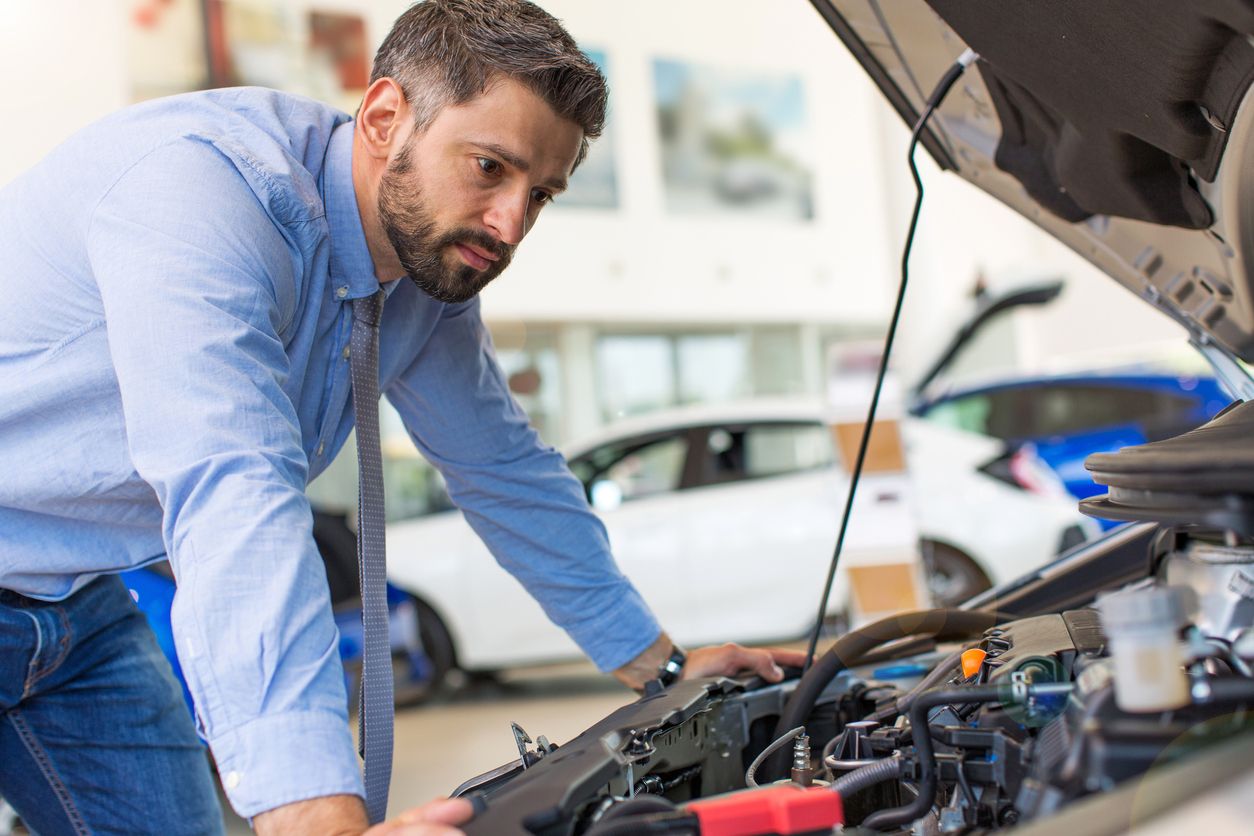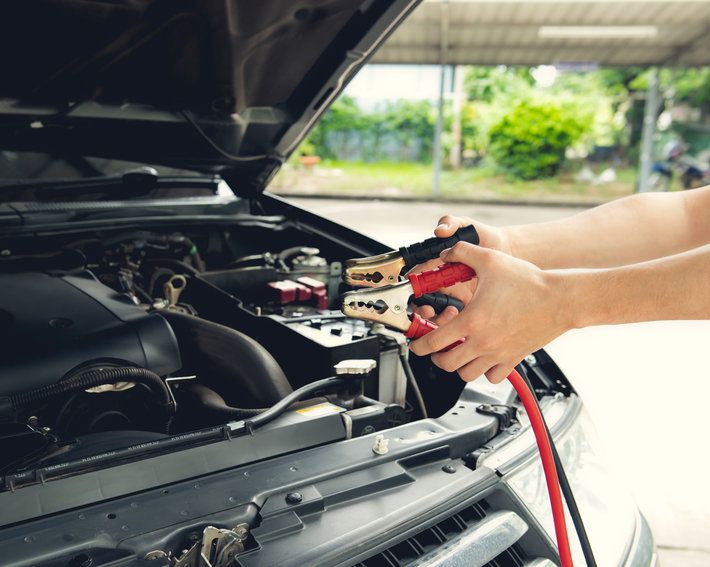Metals are naturally inclined to corrode, and the metal in your car battery terminals is no exception! In fact, corroded battery terminals are one of the most common causes of electrical problems and decreased battery performance in cars. But just because corrosion is common, it doesn’t mean you should settle for poor battery performance. Learn why battery corrosion happens, how to identify it, and what to do about corroded battery terminals.
What causes car battery corrosion?
Through a series of chemical reactions, batteries convert sulphuric acid into bursts of electricity — which flow out through the battery terminals to start your engine. Once the engine is running, the alternator takes over the role of powering your car and its electrical functions.
When a battery becomes corroded, energy can flow less efficiently through its terminals, causing you to notice a decrease in battery power. The most common cause of battery corrosion is from electrolyte or electrolyte vapors emitting from the top of the battery. Hydrogen gas, which is naturally released from the battery may also allow the acidic electrolyte to condense on the top of the battery. A second type of corrosion occurs between the cables and the battery terminal posts since they are different types of metals. A third type of corrosion known as sulfation occurs internally within the battery over time.
Battery age, over- or under-charging, and excessive exposure to certain elements (like salt or moisture) can all make your car battery corrode quicker. Additionally, since battery acid inevitably releases hydrogen gas and electrolyte vapor, corrosion can’t be stopped entirely, but it can be delayed with proper battery care.
How to identify battery corrosion?
1. Notice symptoms of battery corrosion.
A corroded battery will make itself known! If you notice symptoms of battery failure such as slow cranking, dim headlights, or if you can’t start your car at all — a defective battery might be to blame.
However, don’t just assume you’ve got a corroded battery! These symptoms could be caused by problems other than battery corrosion — such as misfiring spark plugs or a failing starter, which could also cause slow cranking. A visual inspection can help you determine if you’ve got corroded battery terminals or a different issue.
2. Visually inspect the battery.
Battery corrosion is typically visible — which means you can check for it yourself! Take the key out of the ignition, let your car cool down, and pop the hood. Locate the battery and make note of anything that looks out of place, including frayed cables, a bloated battery case, leaks, and corrosion. Wear protective gloves (or just don’t touch anything) and use a flashlight to help you spot irregularities.
Corrosion looks like a flaky, white-to-greenish grime, which may remind you of crusty mold on a piece of bread. Yuck! You can help keep this unsightly battery terminal corrosion at bay by adding the corrosion protection package when you purchase a new battery at Tires Plus.
If you do spot any corrosion on your battery terminals, it’s best that you get a professional opinion from your local auto technician as to what the cause may be. If the professionals at Tires Plus determine that corrosion is the only problem, they can perform a Battery Guard service to clean the corrosion from the battery and protect it from coming back.
3. Get a battery check.
Corroded battery terminals often go hand-in-hand with other car battery issues — like frayed cables and leakage. These issues can snowball into bigger problems, which are more annoying and expensive! Further, it is difficult to see the level of internal corrosion from the outside of the battery.
To help you get an idea of when your battery should be replaced, the virtual car battery tester can help give you a rough estimate. However, to find out precisely the condition of your battery and an estimate of when it may need to be replaced, visit your local Tires Plus for a battery check. Our certified technicians will perform a diagnostics test to help determine the condition of your battery.
If a battery replacement is suggested or required, we’ll give you recommendations, so you can make the final call!



